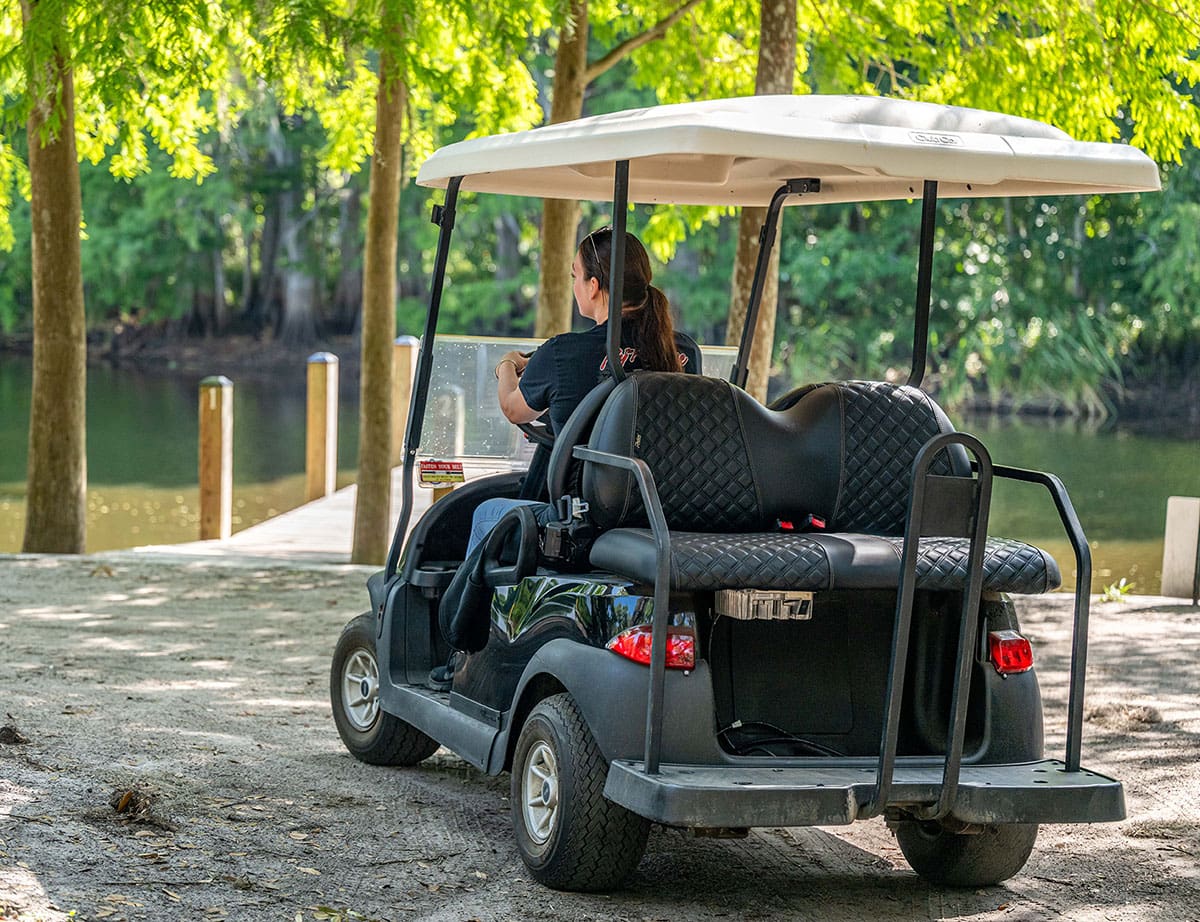If you’ve ever been involved in a car accident, you know that it is scary and overwhelming. But dealing with the aftermath can be equally stressful.
One common concern is how to manage getting around — to work, to school, to buy groceries, to pick up the kids — while your car is in the shop being repaired. This is where rental car coverage within a car insurance policy comes into play.
When purchasing auto insurance, many drivers overlook their policy’s optional rental reimbursement coverage. They are later surprised that their insurance doesn’t automatically cover rental car costs after a covered accident.
If you have questions about whether their insurance will cover the cost of a rental car, what expenses are involved, or how long the coverage lasts, keep reading.
Does insurance cover rental cars after an accident?
One of the first questions people have after an accident is whether their car insurance will cover the cost of a rental car. The answer depends on your specific insurance policy.
Typically, standard car insurance policies only automatically include rental car coverage if you’ve added rental reimbursement coverage. This optional add-on helps cover the cost of a rental car while your vehicle is being repaired after an accident. Without this coverage, you’ll likely have to pay for the rental out of pocket.
What is rental reimbursement coverage?
Rental reimbursement coverage is a type of insurance that helps cover the cost of renting a car while yours is in at the dealership or local mechanic or autobody shop for repairs after an accident.
The primary benefit of rental reimbursement coverage is that it ensures you have a means of transportation without incurring additional out-of-pocket expenses during the repair period. However, it’s important to distinguish between several terms related to rental car coverage:
- Loss of use is when the insurance company of the driver who was at fault pays you, the other vehicle owner, for not being able to use their car during repairs.
- Rental reimbursement covers the cost of renting a car while your car is being repaired, regardless of who was at fault.
- Transportation expenses cover a broader range of costs, such as bus, taxi, or ride-share fares necessary while your car is out of commission.
How does rental reimbursement coverage work?
Rental reimbursement coverage can be a lifesaver when your car is out of commission due to an accident. Here’s a detailed look at how to get a rental car from an insurance claim:
- You’re involved in a car accident
- After the accident, make sure everyone is safe and call emergency services if needed. Exchange insurance information with the other driver and document the scene with photos.
- Report the accident
- Don’t hesitate when filing a claim with your insurance company. Be sure to include the accident’s date, time, and location, a clear description of what occurred, specifics about the vehicles involved, any injuries sustained, and contact information for everyone involved or who witnessed the incident. If law enforcement was present, include the agency’s name and the report number.
- Your insurer will do a coverage check
- The insurance adjuster will review your policy to confirm that you are eligible to have the cost of a rental car covered while your vehicle is being repaired. While on the phone, ask if your insurance also covers towing if your car couldn’t be safely driven from the scene.
- Ask about cost coverage and limits
- Your insurance policy will specify a daily limit and a maximum duration for rental coverage. If the rental costs exceed your daily limit or you need the rental car for longer than the covered period, you will be responsible for the additional expenses.
- You arrange for a rental car
- Your insurance company may have partnerships with specific rental car companies, which can streamline the process. They might provide you with a list of preferred rental agencies or even make the reservation for you. If you choose to rent from a different company, verify that the costs will still be covered under your policy.
- Submit proof of rental
- Keep your receipts and original rental agreement documentation from the rental car company. If necessary, submit them to your insurance company for reimbursement.
What is not covered by rental reimbursement coverage?
While rental reimbursement coverage can make things a little easier after the stress of being involved in an accident, it does have its limitations and exclusions. It’s important to understand what is not covered:
- Non-covered events: Rental reimbursement does not apply if your car is in the shop for routine maintenance or non-accident-related repairs.
- Exceeding coverage limits: If you rent a car that costs more than your policy’s daily limit or for a period longer than the policy allows, you will be responsible for the additional costs.
- Optional upgrades: Rental car coverage is intended to get you wheels to keep you mobile, not to test drive a fun new make and model. The extra costs will not be covered if you rent a more expensive or luxury car.
How much does rental reimbursement coverage cost?
Many drivers are caught off guard when their insurers tell them that rental reimbursement coverage is not a cost baked into the standard car insurance policy. That’s because many drivers shop for the lowest monthly premium and often bypass any add-on extras.
The cost of add-on rental reimbursement coverage varies depending on your insurer and the specifics of your policy. On average, adding rental reimbursement coverage to your car insurance policy costs between $2 and $15 per month.
This cost is relatively low compared to how much you’d pay to rent a car. According to Fidelity, in 2024, renting a car in the US costs between $50 to $80 a day. A recent NerdWallet report showed that at major U.S. airports, the average car rental can run $500-700 a week.
Here are a few things to remember when thinking about costs:
- Rental car prices vary widely depending on a number of factors, including location, the time of year, the car type, and when you book.
- Next-day booking is often much more expensive than booking months in advance.
- Your car rental coverage probably won’t cover the full daily rental rate.
- You are still responsible for your deductible, so car rental costs will be applied.
- And filing a claim on your auto insurance policy could raise your monthly premium.
How long will I need a rental car after an accident?
The length of time you’ll need a car rental depends on the extent of the damage to your car, the time needed for repairs, and the availability of parts.
Here’s a quick look at how long a collision repair might take:
| Type of Collision Repair | Average Time to Fix |
|---|---|
| Minor collision repair | 1-3 days |
| Major collision repair | 1 to 3 weeks |
| Paintless dent repair | 1-2 days |
| Bumper repair/replacement | 1-3 days |
| Fender repair/replacement | 1-4 days |
| Door repair/replacement | 2-4 days |
| Glass replacement | 1-2 days |
| Suspension repair | 2-3 days |
| Frame straightening | 4 days – 2 weeks |
| Paint repair (minor) | 2-4 days |
| Paint repair (major) | 1-2 weeks |
| Airbag replacement | 2-5 days |
| Engine repair/replacement | 1-4 weeks |
| Complete vehicle restoration | 4-8 weeks or longer |
How long will insurance pay for a rental car after an accident?
As you can see from the table above, most car repairs take from a few days to up to four weeks. That may not align with the length of time your insurance covers your car rental. It all depends on the terms of your rental reimbursement agreement.
Typically, policies have a daily limit, usually around $30 to $40, for up to 30 days. Alternatively, they might offer a fixed amount, like $25 daily up to $800. However, this varies based on your policy and how badly your car is damaged.
Can I add rental car reimbursement coverage after an accident?
Insurance companies require rental car reimbursement coverage before an accident happens. It cannot be retrofitted into your policy after the fact, which would be like buying insurance for an event that has already taken place.
Our recommendation is to review your policy and consider adding rental reimbursement coverage before you need it. If you’re in the process of buying insurance, before dismissing this convenient type of protection, carefully weigh the cost of a few dollars every month against the costlier expense of renting a car.
Is rental reimbursement insurance worth it?
Knowing the ins and outs of rental car coverage after an accident is key to handling the aftermath smoothly. You’ll be better prepared by understanding if your insurance covers rental cars, what rental reimbursement coverage offers, and how to get a rental car through insurance.
We hope you never experience an accident, but if you do, we encourage you to be proactive by reviewing your policy and adding rental reimbursement coverage. If you’re considering this, contact your current provider to see if they offer coverage.
If your insurer doesn’t offer rental car reimbursement and you’re considering switching insurance plans, we can help evaluate your current policy and help you find alternative coverage!
Start today by calling The Baldwin Group at (813) 939-5288 or get a fast online quote in minutes.






